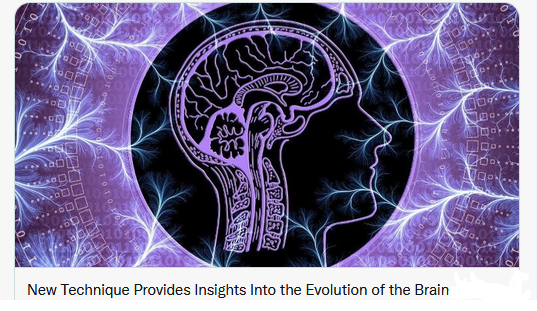|
Neuromorphic Computing for Intel
By creating an architecture that at its core is modeled like a brain, the idea is that having millions of neurons and synapses will lead to compute tasks with the unique power/performance benefits in specific tasks that brains are designed to do. It’s a long term potential commercial product for Intel, however the task for the team has been to develop both the technology and the software to discover and accelerate tasks that are suited to neuron-type computing. URLs / Links: Intel rolls out new Neuromorphic Chip
0 Comments
Abstract
Different contexts favor different patterns of adaptive learning. A surprising event that in one context would drive rapid belief updating might, in another context, be interpreted as a meaningless outlier. Here, across two experiments, we examined whether participants performing a target judgment task under spatial uncertainty (n=31, n=64) would spontaneously adapt their patterns of predictive gaze according to the informativeness or uninformativeness of surprising events in their current environment. Uninstructed predictive eye movements exhibited a form of metalearning in which event-by-event learning rates were modulated differently by surprise across contexts. Participants also appropriately readjusted their patterns of adaptive learning when the statistics of the environment underwent an unsignaled change. Although significant metalearning was observed in all conditions, performance was consistently superior in contexts in which surprising events reflected meaningful change, potentially reflecting a bias toward interpreting surprise as informative. Overall, our results demonstrate remarkable flexibility in contextually adaptive metalearning. URLs / Links: Experience-driven recalibration of learning from surprising events Finding From a Population-Based Longitudinal Study Context There has been increasing concern about the impact of the global economic recession on mental health. To date, findings on the relationship between income and mental illness have been mixed. Some studies have found that lower income is associated with mental illness, while other studies have not found this relationship.
Objective To examine the relationship between income, mental disorders, and suicide attempts. Design Prospective, longitudinal, nationally representative survey. Setting United States general population. Participants A total of 34 653 noninstitutionalized adults (aged ≥20 years) interviewed at 2 time points 3 years apart. Main Outcomes Lifetime DSM-IV Axis I and Axis II mental disorders and lifetime suicide attempts, as well as incident mental disorders and change in income during the follow-up period. Results After adjusting for potential confounders, the presence of most of the lifetime Axis I and Axis II mental disorders was associated with lower levels of income. Participants with household income of less than $20 000 per year were at increased risk of incident mood disorders during the 3-year follow-up period in comparison with those with income of $70 000 or more per year. A decrease in household income during the 2 time points was also associated with an increased risk of incident mood, anxiety, or substance use disorders (adjusted odds ratio, 1.30; 99% confidence interval, 1.06-1.60) in comparison with respondents with no change in income. Baseline presence of mental disorders did not increase the risk of change in personal or household income in the follow-up period. Conclusions Low levels of household income are associated with several lifetime mental disorders and suicide attempts, and a reduction in household income is associated with increased risk for incident mental disorders. Policymakers need to consider optimal methods of intervention for mental disorders and suicidal behavior among low-income individuals. Summary: H3 acetylation of basal neural precursor cells may have been an important factor in the evolution of the human neocortex. As humans, we have a large and intricately folded neocortex that accounts for many of our intellectual abilities and sets us apart from all other species. A research team headed by Dr. Tran Tuoc from the Department of Human Genetics at the Faculty of Medicine at Ruhr-Universität Bochum (RUB) has identified an important factor that could have led to this brain development in the course of evolution: the so-called H3 acetylation of basal neural precursor cells.
Americans are also filling more prescriptions for antidepressants and anti-insomnia drugs The coronavirus is taking a toll on mental health.
The number of prescriptions for antidepressant, anti-anxiety and anti-insomnia medications filled per week increased 21% between Feb. 16 and March 15, 2020, according to a recent report by Express Scripts, a Cigna-owned CI, -0.51% pharmacy benefit manager. The study analyzed prescription claims filled between Jan. 19 and March 15 of this year among a sample of more than 31.5 million commercially-insured individuals, and found that claims peaked during the week ending March 15, when the novel coronavirus that causes COVID-19 was declared a pandemic. Anti-anxiety drugs saw the biggest spike, jumping 34.1%, which was more than double the number of insomnia aids (14.8%), and almost twice as high as antidepressants (18.6%). |
Psyche Summit™
|
© COPYRIGHT 2020-2024. Psyche Summit. ALL RIGHTS RESERVED.




 RSS Feed
RSS Feed